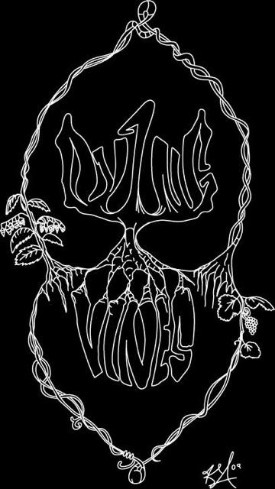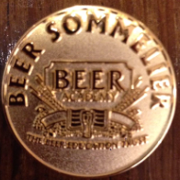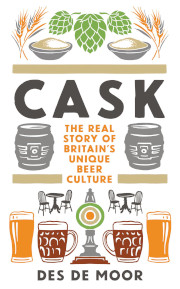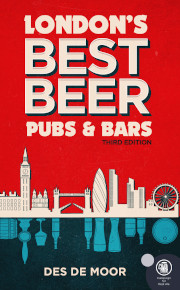
Dying Vines brewery, Oakland, California
ABV: 4%
Origin: Oakland, California, USA
Website: dyingvines.com, lindenbeer.com
One interesting facet of my most recent visit to California in October 2012 was the obvious growth of interest among craft brewers in cask conditioned beer. Numerous bars I visited were sprouting a couple of handpumps or a firkin or two on stillage, and judging by the overall quality the cellar staff seemed to have improved their skills in dealing with the stuff.
As a British beer connoisseur whose tastes were formed in the CAMRA era, I can’t help finding the sight of an Angram beer engine cheering. But it also has to be admitted that many of the signature styles of the US craft beer movement don’t always work so well at the lower carbonation and warmer temperatures of a classic cask ale. So what’s also noteworthy is that a complementary interest in the sort of delicate, low gravity session beers that work well in cask appears to be growing too.
To me, mild is the ultimate cask beer style. A descendant of the original ‘running ales’ that ousted the aged, ‘stale’ flavours of porter in popularity, it flourished as a proletarian refresher in the Victorian industrial heyday. A good mild is an excellent showcase of the brewer’s skill. Exhibiting depth of flavour and character at a gravity perfect for easy, sociable drinking, it best expresses its subtlety at cellar temperature and with the gentle carbonation of a natural secondary conditioning in an unpressurised cask.
Previous tastings of North American milds were chilled and gassy experiences leading me to conclude that brewers across the Atlantic hadn’t quite got the point of the style. But the sample of Dee’z English Mild I tasted on cask on my last visit was something else entirely.
It wasn’t just the best US cask beer I’ve sampled so far, it was one of the very best cask milds I’ve ever encountered. And as for many years my regular strategy at a British beer festival is to start by hitting as many milds I haven’t yet tried as I can find, that’s not an insignificant assessment.
The beer was a deep brown colour with a smooth fawn head. A lightly inky, toasty aroma had notes of caramel and very gentle roast. The palate was smooth, rich and very authentic, malt accented but lightly roasty with light but kind caramel, gently tangy fruit hints, an emerging slightly pursing dryness and a restrained hop bite.
Chocolate showed up in an easy malt finish that developed smooth, fudgy notes over very gentle but cheering roast and a late hint of charcoal. Overall the beer was very well integrated and moreish.
It’s brewed by Kellen Alcala, who now moonlights as a professional brewer alongside his day job in a homebrew supplies shop in Berkeley. Kellen set up Dying Vines deliberately to pursue a largely British-inspired interest in session beers, and Dee’z, named after his wife, was his first product.
He brews at Linden Street brewery in Oakland, which itself focuses on relatively modest and everyday styles, producing old fashioned pre-Prohibition lager and California common beer. Oakland, just across the bay from San Francisco, was a major industrial brewing town before the passing of the 18th Amendment, and operations like Linden Street and Dying Vines are spearheading a modest revival.
The Abbot’s Cellar in San Francisco’s Mission District, where I tried Dee’z, is an upmarket restaurant that must be one of the poshest beer destinations in the Bay Area, so there was a certain irony in enjoying a mild in such well heeled surroundings. Quite what language the $8 (£5.30, €6,25) a (small American 160z/473ml) pint price tag would have provoked from a Black Country factory worker I can but guess – though the condition was immaculate.





Leave a Reply